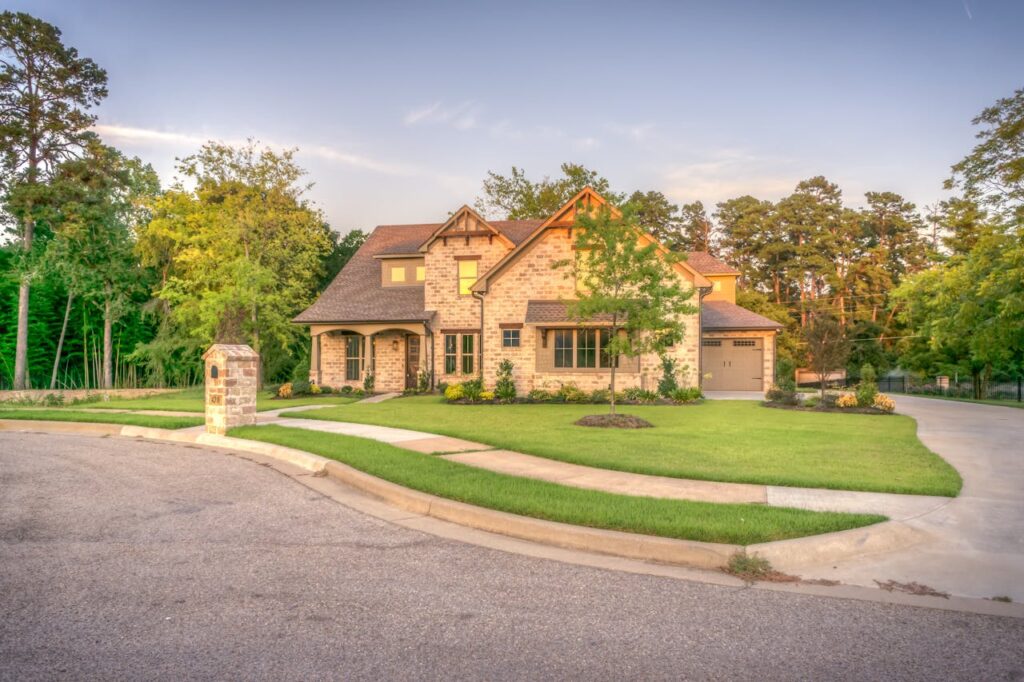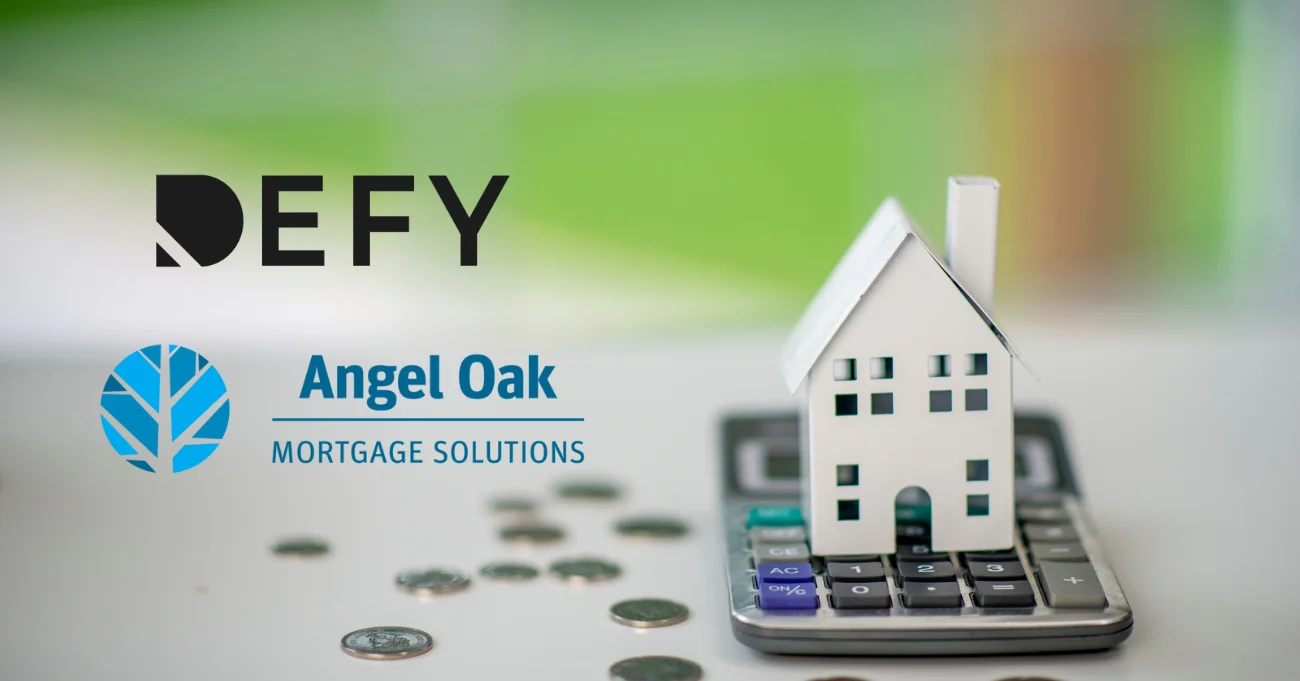With home prices steadily increasing in Georgia, jumbo loans have become a popular option for homebuyers looking to maximize their purchasing power. For residents of the Peach State who are eyeing high-value properties beyond conventional loan limits, jumbo loan Georgia options can be valuable tools. According to CoreLogic, jumbo loans represented just 19% of U.S. conventional purchase loans in 2020, but by 2022, that number jumped to 32%—the highest level since 2005.
Our guide will walk you through everything you need to know about jumbo loans in Georgia to help you buy your dream home.
Understanding Jumbo Loans
A jumbo loan is a type of mortgage that’s used to finance properties that exceed the loan limits set by the Federal Housing Finance Agency (FHFA). Since jumbo loans have loan amounts above these conventional loan limits, they’re considered “non-conforming” loans. These loans allow homebuyers to borrow larger amounts of money to buy luxury homes or properties in expensive real estate markets.
Despite some lenders having stricter requirements for jumbo loans, they often still offer competitive interest rates and terms to provide financial flexibility for homebuyers looking to purchase high-value properties.
Conforming Loan Limits
The FHFA sets conforming loan limits annually based on changes in average home prices. These limits define the maximum amount that can be borrowed through conforming loans, which are backed by Fannie Mae or Freddie Mac. Any loan amount over these limits is considered a jumbo loan. In 2024, the conforming loan limit for most areas in the U.S. is $766,550. However, in high-cost areas like California or New York, the limit can be as high as $1,149,825 to properly reflect the more expensive property prices in these markets.

Jumbo Loan Interest Rates
Since jumbo loans are larger than conventional loans and aren’t backed by Fannie Mae or Freddie Mac, lenders tend to see them as riskier, which is often reflected in the interest rate that’s offered. However, in recent years, the gap between jumbo loan rates and conforming loan rates has narrowed. In some cases, jumbo loans may even offer more competitive rates depending on certain factors like your credit score, down payment amount, loan-to-value (LTV) ratio, and overall market conditions.
With larger loan amounts, even a small difference in interest rates can make a major impact on your monthly payments. Before securing a jumbo loan, make sure to shop around
What You Need to Know About Georgia Jumbo Loans
If you’re looking to purchase a home in Georgia, it’s important to stay updated on the state’s real estate trends. Here’s what happened to Georgia real estate over the past year as of July 2024 according to Redfin:
- Median sale price increased 3.3% year-over-year
- Number of homes sold increased 5.2% year-over-year
- Statesboro, GA experienced the fastest-growing median sale price with a 217% increase since January 2020
Currently, the conforming loan limit for a Georgia single-family home is $766,550. However, for those who want to live in upscale areas, such as Milton or Alpharetta, many of these homes exceed that amount. This is where jumbo loans in Georgia can bridge the gap, helping you secure your dream home.

Jumbo Loan Georgia Pros and Cons
Pros:
- Allows you to finance luxury homes or high-value properties with more borrowing power
- Competitive interest rates that could be comparable to conventional rates
- No private mortgage insurance (PMI) required even with a down payment of less than 20%
- Potential for higher returns if your property appreciates significantly
- Flexibility in loan terms and interest rates
Cons:
- Stricter qualification requirements compared to conventional loans
- Potentially higher down payment
- Limited availability
How to Get a Jumbo Loan
Getting a jumbo loan in Georgia isn’t necessarily complicated, but you should still be prepared with the right requirements to qualify. Jumbo loans can be more difficult to qualify for because of their larger size, so understanding their unique requirements is a great first step to take.
In this section, we’ll walk you through the requirements you’ll need to qualify for a jumbo loan, where you can get them, and potential alternatives.
Qualifying for a Jumbo Loan
Since jumbo loan requirements aren’t set by Fannie Mae and Freddie Mac, each lender can set their own requirements. Despite having more flexibility, the requirements are often slightly more strict due to the larger amount of risk that lenders are taking on.
While exact qualification requirements for a jumbo loan in Georgia varies by lender, you’ll typically need:
- Loan amount surpassing conforming loan limits in your county
- A minimum FICO score of 700+
- A maximum debt-to-income (DTI) ratio of 43%, but ideally less than 35%
- A minimum down payment of anywhere between 10-25%
- Cash reserves to cover six to 12 months of mortgage payments
- Documentation required could include W2s, tax returns, 1099s, bank statements, and proof of assets
Before applying for a jumbo loan, evaluate your financial profile to determine whether you can meet these requirements or not. If not, take a few months to improve certain qualifying factors to increase your chances of approval.

Jumbo Loan Lenders
Jumbo loans are offered by a variety of different lenders, from traditional banks and credit unions to mortgage brokers and private mortgage lenders. Depending on where you get your jumbo loan, you’ll likely see different terms and requirements.
While many borrowers turn to traditional banks for jumbo loans, private mortgage lenders, like us at Defy, can be a more flexible and personalized option. We offer tailored loan terms and we have plenty of experience working with individuals who have unique financial profiles, like high-net-worth individuals or those with unconventional income sources.
If you’re ready to take the first step in your jumbo loan Georgia journey, book a call with us for a free consultation with one of our mortgage experts or give us a ring at (615) 622-1032.
Jumbo Loan Georgia Alternatives
If you can’t qualify for a jumbo loan or prefer to finance your dream home a different way, you have options. While jumbo loans provide a convenient way to finance a high-value home, it may not be for everyone. Here are some alternatives to consider:
- Conforming Loan with Higher Down Payment: By putting down a larger amount upfront, borrowers can stay within the conventional loan limits and bypass the stricter requirements of a jumbo loan.
- Portfolio Loans: These are loans that lenders keep in-house rather than selling to investors, offering more flexible terms for borrowers with unique financial situations.
- Bridge Loans: Temporary financing that helps buyers secure funds while they transition between homes, without committing to a jumbo loan.
- HELOCs (Home Equity Lines of Credit): These allow borrowers to tap into their home’s equity to finance a purchase, providing additional funds as an alternative to a jumbo loan. These are another loan option that we offer at Defy.
- DSCR Loans for Real Estate Investors: No max loan amounts here. DSCR loans allow investors looking to purchase an investment property the option to use rental income as a means to qualify. No tax returns or income documentation required.
Jumbo Loan Georgia FAQs:
- What is a jumbo loan?
A jumbo loan is a type of mortgage where the loan amount exceeds the conforming loan limits set by the Federal Housing Finance Agency (FHFA). Since they don’t meet the conforming loan limits, jumbo loans are considered to be “non-conforming.” These loans are typically used to finance high-value properties or homes in expensive real estate markets.
- Does the conforming loan limit vary by county?
Across the U.S., conforming loan limits may vary by county – high-cost areas where home prices are much higher than the national average will have higher limits, up to $1,149,825. However, in Georgia, all counties have the same conforming loan limit, which is $766,550.
- What are the conforming loan limits?
In 2024, most counties in the U.S. have a conforming loan limit of $766,550. Areas with higher cost of living may have limits of up to $1,149,825. Any loan that’s above these limits is considered a jumbo loan.
- Where can I get a jumbo loan in Georgia?
You can get a jumbo loan in Georgia from various lenders, including banks, credit unions, and private mortgage lenders. For more personalized service and flexibility, consider a private mortgage lender, like Defy, for your jumbo loan in Georgia.
- How can I qualify for a jumbo loan in Georgia?
To qualify for a jumbo loan in Georgia, you’ll typically need:
- Proof of income: W2s, tax returns
- A credit score of 680 or higher depending on lender and property type
- A minimum down payment of 10-30% depending on the lender
- A maximum debt-to-income (DTI) ratio of 38-43%
- Primary, Secondary, Investment (1-4 units) depending on the lender
- Potential for cash reserves depending on the lender
- What are the interest rates on jumbo loans?
Depending on your financial profile and the current market, jumbo loan interest rates can be competitive and could be close to, or even lower than, conventional loan rates.
- Can I refinance a jumbo loan?
Yes! You can refinance a jumbo loan. Jumbo loan refinancing is a similar process as refinancing a conventional loan, but may come with stricter requirements because of the larger loan amount.




